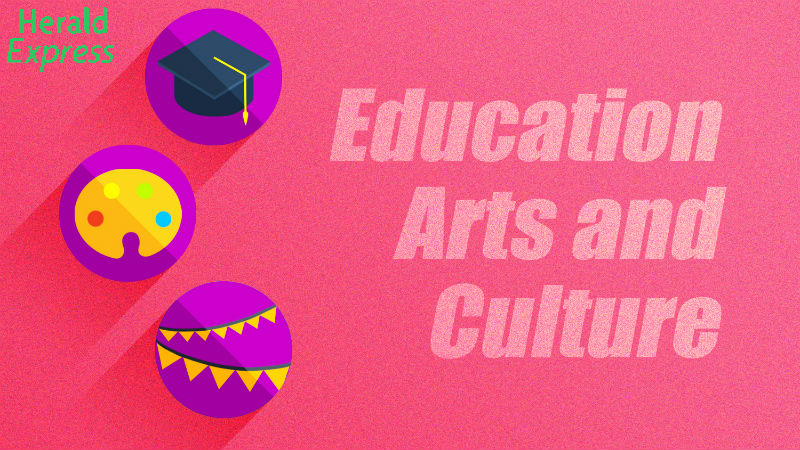Private and public schools in the Cordillera Administrative Region (CAR) will host various activities including camps, conferences, seminars and festivals to celebrate the International Year of Indigenous Languages (IYIL). Along with partner agencies, the participating schools are Benguet State University (BSU), Cordillera Career Development College, Saint Louis University, Mountain Province State Polytechnic College, Kalinga State University, Apayao State College and King’s College of the Philippines.
“In a nutshell, gusto ng IYIL na pataasin ang kaalaman ng mga mamamayan ukol sa sarili nilang wika. Year-long po itong mga activities and we want to target steps that will improve the quality of life, to enhance international cooperation, to strengthen intercultural dialogue,and re-affirm cultural and linguistic continuity,” said Dr. Ricardo Ma. Nolasco, one of the convenors IYIL Philippines.
The said IYIL activities were launched on February 28, 2019 at the Benguet State University (BSU), Strawberry Hall. The launching was attended by personalities from the Commission on Higher Education, UNESCO, National Commission on Indigenous People, Department of Education and Summer Institute of Linguistics to signify their support.
Vicky Tauli-Corpuz, Special Rapporteur of UN and a member of the IYIL steering committee shared that articles 13, 14 and 16 of the United Nations Declaration of the Rights of Indigenous Peoples became the basis of lobbying by IPs that led to the adoption of Resolution 71-178 by the UN General Assembly proclaiming 2019 as the IYIL.
“Indigenous Peoples have always fought for their right to use their own languages. The UN Declaration on the Rights of Indigenous Peoples (IPs) has three articles that talk about the rights of IPs to languages. One is Article 13 which says that IPs have the right to revitalize, to use and develop and transmit their histories, languages, oral traditions, philosophies, writing systems and literatures and to retain their own names for communities, places and persons. The second part of this article says that states shall take effective measures to ensure that this right is protected and also to ensure that Indigenous People can understand and be understood in political, legal and administrative procedures if necessary through the provision of interpretation or by other appropriate measures. Then Article 14 says that IPs have the right to establish and control their own educational systems and institutions providing education in their own languages in a manner appropriate to their cultural methods of teaching and learning. Finally, Article 16 says IPs have the right to establish their own media in their own languages and to have access to all forms of non-indigenous media without discrimination. These are the articles upon which IPs pushed strongly for the declaration of an International Year on Indigenous languages,” explained Tauli-Corpuz.
Meanwhile, Guest Speaker, Commissioner Ronald L. Adamat of CHED described the launching as a historic event and shared his own experience about the preservation of indigenous languages, specifically the Teduray language.
“Since college, embedded nasa aking mind iyong pag-pro-protect ng aming kultura dahil pinag-uumpugan kami ng mga malalaking kultura sa Mindanao, and these are the Muslims and the Christians. Ngayon kung hindi naming protektahan ang aming kultura at ang aming language, unti-unti na lang smawawala,” he said.
To do his part in the preservation of his language, Adamat participated in SIL’s efforts in translating the Bible and the history of the Philippines to Teduray after which he went on taking translation jobs in college.
“Even the national anthem I translated to Teduray and its been sung by students and school officials in our hometown in Upi, Maguindanao,” he added.
Adamat also announced that through his initiative, an upcoming CHED Memorandum Order (CMO)will integrate Indigenous Education to the Tertiary Curriculum. He mentioned that one basis of his proposal for the CMO is RA 10908, an Act Mandating the Integration of Filipino-Muslim and Indigenous Peoples History, Culture and Identity in the Study of Philippine History in Both Basic and Higher Education promulgated in 2016.
“Language is a vital component of our culture, alisin mo iyong language o hindi ka makapagsalita ng sarili mong linguahe o dialect, in effect, you are losing your culture and your identity. That is the most unfortunate consequence,” Adamat lamented.
He added that there is no other way forward but to be proud of our tribe and culture and to promote it.
In the University, College of Arts and Sciences, Bokod and Buguias Campus will focus on organizing an Indigenous Language Enthusiasts Society, MultiLingual Education Training, student congress, participation to the first Ba’diw Festival, Creative Interpretation of Indigenous Songs, Literary, Musical and Visual Arts competitions and an international conference to culminate the year-long activities.
By JS Tabangcura
Banner illustration by Don Ray Ramos














